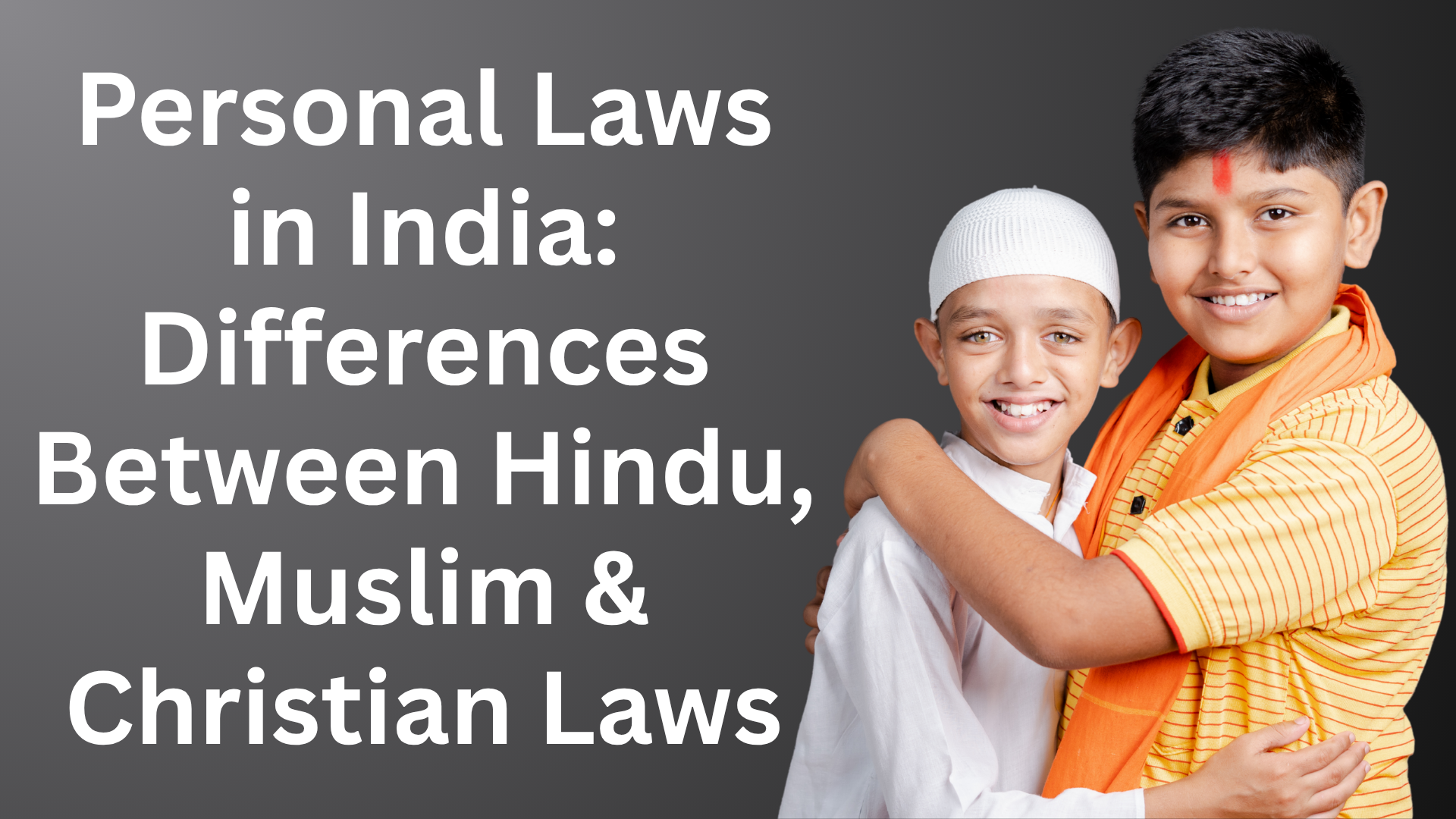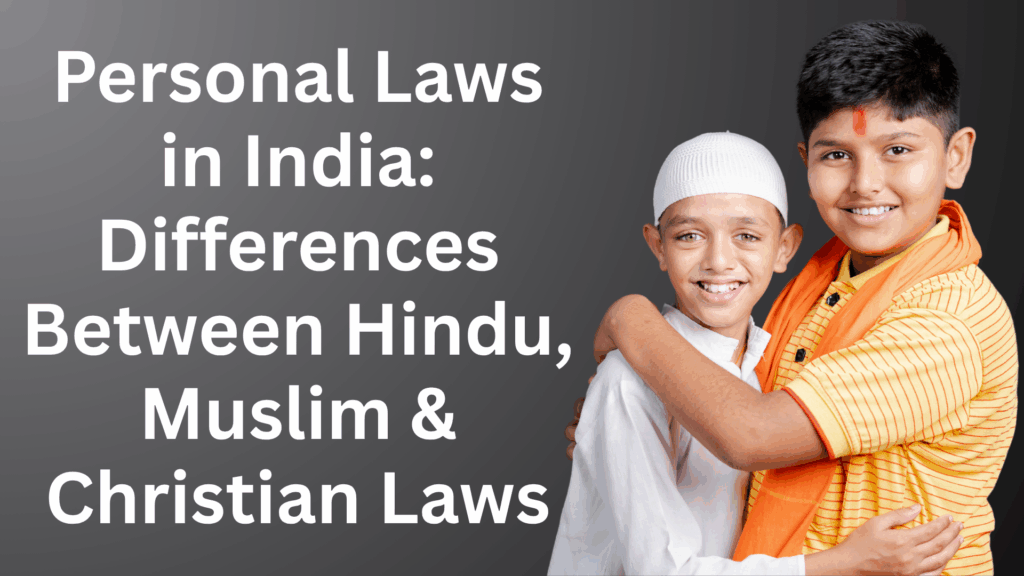Every citizen must know about the Personal Laws in India; Differences Between Hindu, Muslim, and Christian laws have been categorically discussed here.
Personal Laws in India: Differences Between Hindu, Muslim & Christian Laws
Personal laws in India govern matters such as marriage, divorce, inheritance, adoption, and succession. These laws are not uniform across the country because they are based on religious customs. India’s legal system recognizes distinct personal laws for Hindus, Muslims, Christians, and other religious communities, making it a unique pluralistic model.
What Are Personal Laws?
Personal laws are a set of legal principles that regulate family and personal matters based on religion. Unlike criminal or commercial law, which is uniformly applied across India, personal laws differ according to the community involved.

These laws are derived from
- Religious scriptures and customary practices
- Legislative acts passed by Parliament
- Judicial decisions interpreting religious principles in the context of constitutional rights
Hindu Personal Laws
The term “Hindu” under Indian law includes not just Hindus but also Buddhists, Sikhs, and Jains. Hindu personal law is largely codified under a set of statutes passed in the 1950s.
| Subject | Governing Law | Key Provisions |
|---|---|---|
| Marriage | Hindu Marriage Act, 1955 | Monogamy, mutual consent, conditions for a valid marriage |
| Divorce | Hindu Marriage Act, 1955 | Grounds include cruelty, desertion, conversion, etc. |
| Inheritance | Hindu Succession Act, 1956 | Equal rights for sons and daughters (post-2005 amendment) |
| Adoption | Hindu Adoption and Maintenance Act, 1956 | Recognizes full adoption for both male and female Hindus |
Notably, Hindu law was reformed after independence to promote gender equality and social justice, especially in inheritance and adoption.
Muslim Personal Laws
Muslim personal law in India is largely uncodified and is based on the Shariat (Islamic law). It differs between Sunni and Shia interpretations and is administered primarily through community customs and case law.
| Subject | Governing Source | Key Provisions |
|---|---|---|
| Marriage (Nikah) | Muslim Personal Law (Shariat) Application Act, 1937 | Nikah is a contract; Mehr (dower) is mandatory |
| Divorce | Quranic procedure; triple talaq banned | Divorce through Talaq, Khula, or judicial means |
| Inheritance | Based on Quranic injunctions | Fixed shares to heirs; women inherit but less than men |
| Adoption | Not recognized like in Hindu law | Guardianship (Kafala) is allowed but not full adoption |
Though uncodified, Muslim personal law has been subject to significant judicial scrutiny, especially concerning women’s rights.
Christian Personal Laws
The Christian personal law is largely codified and applies to Christians across denominations, including Catholics and Protestants.
| Subject | Governing Law | Key Provisions |
|---|---|---|
| Marriage | Indian Christian Marriage Act, 1872 | Marriage must be solemnized by a licensed person |
| Divorce | Indian Divorce Act, 1869 | Grounds include adultery, cruelty, desertion, etc. |
| Inheritance | Indian Succession Act, 1925 | Equal inheritance rights to male and female heirs |
| Adoption | Christians typically adopt under Juvenile Justice Act | No separate personal law for adoption |
Christian personal laws have been revised over time to offer more gender neutrality, especially in divorce and succession matters.
Key Differences Across Communities
| Aspect | Hindu Law | Muslim Law | Christian Law |
|---|---|---|---|
| Marriage | Religious ceremony | Contractual agreement | Solemnized by authority |
| Divorce | Statutory grounds | Talaq, Khula, judicial | Judicial divorce only |
| Inheritance | Equal for sons/daughters | Fixed Quranic shares | Equal for male and female |
| Adoption | Full legal adoption allowed | No full adoption | Via secular JJ Act |
These differences often lead to conflicting views, particularly in cases involving interfaith marriages, succession disputes, or child custody.
The Push for Uniform Civil Code
The idea of a Uniform Civil Code (UCC) seeks to replace these diverse personal laws with one common set of laws applicable to all citizens, irrespective of religion. While it is a Directive Principle under Article 44 of the Constitution, it remains controversial due to concerns of religious freedom, identity, and minority rights.
Proponents argue it will ensure equality, especially for women. Opponents view it as interference in religious practices. The debate continues, with UCC being discussed in courts, parliaments, and public forums.
India’s personal law system reflects its religious diversity but also brings forth challenges of gender justice and legal clarity. Reforms, when they come, will need to balance faith, fairness, and constitutional values.





